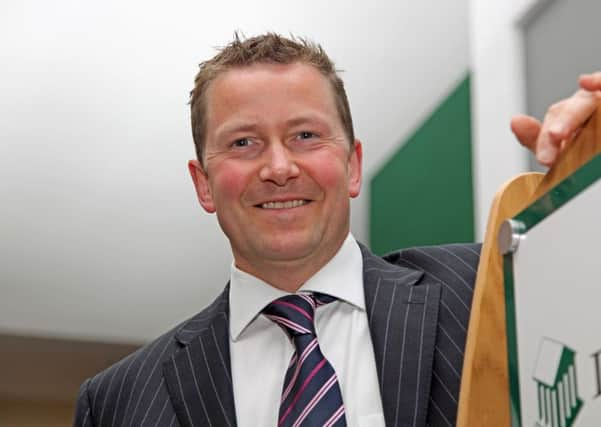Blackfriar: Is it time to cap bonus payments?


CEO Jeff Fairburn has seen his £100m bonus cut by £25m to £75m and says he will contribute a big chunk of that £75m to charity.
He’s refusing to be drawn on where the money will go, but said that Yorkshire charities can expect a sizeable contribution which is good news for the region.
Advertisement
Hide AdAdvertisement
Hide AdHowever, will it be enough to appease shareholders, who could still vote against the directors at the York-based firm’s AGM in April?
Blackfriar suspects they will vote in favour of management as they are sitting on a hefty return.
Persimmon announced stellar results on Tuesday as it enjoys booming demand for its new homes.
The group’s underlying pre-tax profit rose 25 per cent to £977m in the year to December 31.
Advertisement
Hide AdAdvertisement
Hide AdYorkshire’s biggest PLC described the results as outstanding and said the start to the spring sales season in 2018 has been encouraging and private sales are up 7 per cent on last year.
Newly appointed acting chairman Nigel Mills, who took on the role on an interim basis on Monday, said the start of the 2018 spring season has been encouraging, with the group’s private sales rate per site up 7 per cent and average selling prices 2 per cent ahead at £234,106 this year.
In 2017 the group’s average selling price increased 3 per cent to £213,300.
The group announced it will bump up its dividend payouts following the profits improvement and pledged to pay out an additional 125p a share for the next three years.
Advertisement
Hide AdAdvertisement
Hide AdThis strong performance has allowed the company to increase its capital return plan to shareholders by £3.75 between now and 2020.
All being well, this will allow the group to deliver cash returns of £13 per share between 2012 and 2021.
As Laith Khalaf, senior analyst at Hargreaves Lansdown, said: “The housebuilder is doing so well it’s sending a wall of cash back to shareholders in the form of special dividends, with £2.35 per share being paid in the next five months alone. No surprise then to see the market roar its approval in early morning trading.”
However, some investors have said the group has been boosted by the Government’s Help to Buy scheme, giving it an unfair advantage.
Advertisement
Hide AdAdvertisement
Hide AdThe pay controversy led to the resignation of chairman Nicholas Wrigley and remuneration committee chairman Jonathan Davie late last year.
At the time, Persimmon admitted that the generous pay out plan presided over by the pair “could have included a cap”.
The firm put out this statement in December: “The board believes that the introduction of the 2012 LTIP has been a significant factor in the company’s outstanding performance over this period, led by a strong and talented executive team.
“Nevertheless, Nicholas and Jonathan recognise that the 2012 LTIP could have included a cap. In recognition of this omission, they have therefore tendered their resignations.”
Advertisement
Hide AdAdvertisement
Hide AdThis week Russ Mould, investment director at AJ Bell, said: “Questions will be asked about the structure of 2012’s long-term incentive plan, the riches it bestowed upon management and how shareholders let it through on the nod, but Persimmon has gone a long way to calming at least one unhappy party by showering investors in the stock with a cash windfall of their own.”
It appears that Persimmon’s directors may have finally won approval from shareholders.
However, they need to learn a lesson here.
Long term incentive plans should be capped to avoid another damaging investor backlash.
Going forwards, shareholders will want to see a more transparent award scheme at Persimmon.